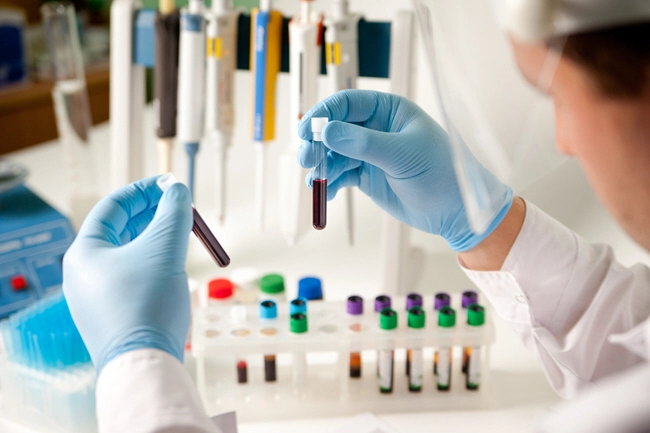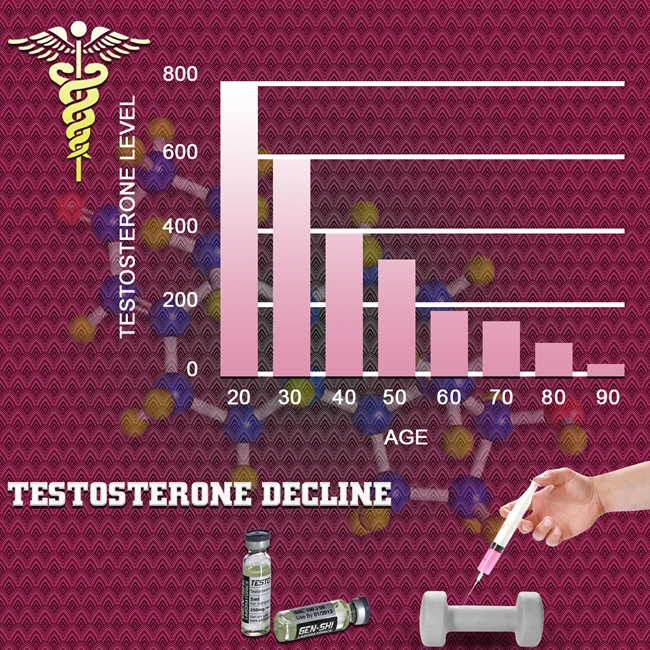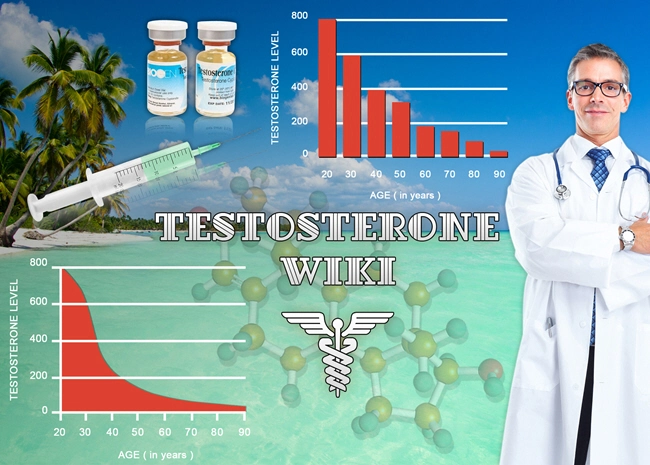
Introduction
Depo Testosterone, a widely used injectable form of testosterone produced by Pfizer, plays a significant role in the management of hypogonadism in American males. As testosterone replacement therapy (TRT) gains popularity, understanding its implications on oncological conditions becomes crucial. This article delves into the effects of Depo Testosterone on cancer risks and outcomes, providing essential insights for American men considering or currently undergoing TRT.
The Role of Depo Testosterone in Male Health
Depo Testosterone is primarily prescribed to address low testosterone levels, a condition known as hypogonadism. This therapy aims to restore testosterone to normal levels, thereby improving symptoms such as decreased libido, fatigue, and muscle loss. As a product of Pfizer, Depo Testosterone has been rigorously tested for safety and efficacy, ensuring that it meets the high standards required for medical use in the United States.
Oncological Considerations and Depo Testosterone
The relationship between testosterone and cancer, particularly prostate cancer, has been a subject of extensive research. Historically, there has been concern that elevating testosterone levels might increase the risk of prostate cancer. However, recent studies suggest a more nuanced picture. For instance, a study published in the *Journal of Clinical Oncology* found no significant association between TRT and increased prostate cancer risk in men with no prior history of the disease.
Prostate Cancer and Depo Testosterone
Prostate cancer remains the most prevalent cancer among American males, making it essential to understand the impact of Depo Testosterone on this condition. While some early research suggested a potential link between testosterone therapy and prostate cancer, more recent and comprehensive studies have challenged this notion. A meta-analysis in the *European Urology* journal concluded that TRT does not increase the risk of prostate cancer in men without a prior history of the disease.
However, for men with existing prostate cancer, the use of Depo Testosterone is approached with caution. The American Urological Association recommends close monitoring of prostate-specific antigen (PSA) levels in men on TRT, as elevated testosterone levels could potentially accelerate the growth of existing cancer cells. Therefore, men with a history of prostate cancer should consult their healthcare provider before initiating TRT.
Other Cancers and Depo Testosterone
Beyond prostate cancer, the effects of Depo Testosterone on other types of cancer are less well-documented. Some studies have explored the potential impact on breast cancer in men, a rare but serious condition. While no definitive conclusions have been reached, ongoing research continues to monitor any potential links.
Monitoring and Safety
For American males on Depo Testosterone, regular monitoring is essential to ensure safety and efficacy. This includes routine blood tests to measure testosterone levels, PSA levels, and other relevant markers. Additionally, patients should undergo periodic physical examinations and discuss any new symptoms with their healthcare provider.
Conclusion
Depo Testosterone, produced by Pfizer, offers significant benefits for American males suffering from hypogonadism. While concerns about its impact on oncological conditions, particularly prostate cancer, have been raised, current evidence suggests that TRT does not increase cancer risk in men without a prior history of the disease. However, for those with existing cancer, careful monitoring and consultation with healthcare providers are crucial. As research continues to evolve, American males can make informed decisions about their health and the potential role of Depo Testosterone in their treatment regimen.
Contact Us Today For A Free Consultation
Dear Patient,
Once you have completing the above contact form, for security purposes and confirmation, please confirm your information by calling us.
Please call now: 1-800-380-5339.
Welcoming You To Our Clinic, Professor Tom Henderson.

- Depo Testosterone: Enhancing Sexual Health in American Men with Pfizer's Hormone Therapy [Last Updated On: March 16th, 2025] [Originally Added On: March 16th, 2025]
- American Men's Experiences with Pfizer's Depo Testosterone Therapy: Benefits and Challenges [Last Updated On: March 17th, 2025] [Originally Added On: March 17th, 2025]
- Depo Testosterone Therapy: Tailoring Treatment for American Males with Hypogonadism [Last Updated On: March 17th, 2025] [Originally Added On: March 17th, 2025]
- Depo Testosterone: Enhancing Men's Health with Pfizer's Injectable Hormone Therapy [Last Updated On: March 17th, 2025] [Originally Added On: March 17th, 2025]
- Depo Testosterone: Efficacy, Safety, and Patient Satisfaction in American Males with Hypogonadism [Last Updated On: March 18th, 2025] [Originally Added On: March 18th, 2025]
- Depo Testosterone: Challenges and Solutions for American Men's Access to TRT [Last Updated On: March 18th, 2025] [Originally Added On: March 18th, 2025]
- Depo Testosterone: Psychological Impacts and Management in American Men [Last Updated On: March 18th, 2025] [Originally Added On: March 18th, 2025]
- Depo Testosterone: Benefits, Risks, and Management for American Males [Last Updated On: March 20th, 2025] [Originally Added On: March 20th, 2025]
- Depo Testosterone Therapy: Innovations and Future in American Male Healthcare [Last Updated On: March 21st, 2025] [Originally Added On: March 21st, 2025]
- Depo Testosterone: Managing Chronic Conditions in American Men with Low Testosterone [Last Updated On: March 21st, 2025] [Originally Added On: March 21st, 2025]
- Depo Testosterone: Managing Delayed Puberty in American Males [Last Updated On: March 22nd, 2025] [Originally Added On: March 22nd, 2025]
- Depo-Testosterone's Impact on Weight Management in American Males: Clinical Insights [Last Updated On: March 22nd, 2025] [Originally Added On: March 22nd, 2025]
- Depo Testosterone: Enhancing Energy and Vitality in American Men [Last Updated On: March 22nd, 2025] [Originally Added On: March 22nd, 2025]
- Depo-Testosterone: Benefits and Risks for Older American Men's Health [Last Updated On: March 22nd, 2025] [Originally Added On: March 22nd, 2025]
- Depo Testosterone: Benefits and Considerations for Transgender American Males [Last Updated On: March 22nd, 2025] [Originally Added On: March 22nd, 2025]
- Depo Testosterone: Enhancing Cognitive Function in American Males [Last Updated On: March 23rd, 2025] [Originally Added On: March 23rd, 2025]
- Depo Testosterone: Managing Hair Loss Risks in American Men on TRT [Last Updated On: March 23rd, 2025] [Originally Added On: March 23rd, 2025]
- Depo Testosterone: Impacts on Sleep and Management Strategies for American Men [Last Updated On: March 23rd, 2025] [Originally Added On: March 23rd, 2025]
- Depo Testosterone: Benefits, Risks, and Prostate Health Considerations [Last Updated On: March 23rd, 2025] [Originally Added On: March 23rd, 2025]
- Depo Testosterone: Effects on Male Fertility and Preservation Strategies [Last Updated On: March 23rd, 2025] [Originally Added On: March 23rd, 2025]
- Depo Testosterone's Impact on Joint Health in American Males: Benefits and Risks [Last Updated On: March 24th, 2025] [Originally Added On: March 24th, 2025]
- Depo Testosterone: Enhancing Mood and Well-being in American Males with Low Testosterone [Last Updated On: March 24th, 2025] [Originally Added On: March 24th, 2025]
- Depo Testosterone: Managing Adolescent Hypogonadism with Informed Care and Monitoring [Last Updated On: March 24th, 2025] [Originally Added On: March 24th, 2025]
- Depo Testosterone: Benefits, Risks, and Legal Issues for American Male Athletes [Last Updated On: March 24th, 2025] [Originally Added On: March 24th, 2025]
- Depo Testosterone: Usage, Dosage Adjustment, and Monitoring for Optimal Health [Last Updated On: March 25th, 2025] [Originally Added On: March 25th, 2025]
- Depo Testosterone: Effects on Blood Sugar Levels in American Males [Last Updated On: March 25th, 2025] [Originally Added On: March 25th, 2025]
- Depo Testosterone: Enhancing Endurance in American Male Athletes - Benefits and Risks [Last Updated On: March 25th, 2025] [Originally Added On: March 25th, 2025]
- Navigating Insurance Coverage for Depo Testosterone: A Guide for American Men [Last Updated On: March 25th, 2025] [Originally Added On: March 25th, 2025]
- Depo Testosterone: Effects on Skin Health and Management Strategies for American Men [Last Updated On: March 26th, 2025] [Originally Added On: March 26th, 2025]
- Depo Testosterone: Benefits for Hypogonadism and Liver Health Considerations [Last Updated On: March 26th, 2025] [Originally Added On: March 26th, 2025]
- Depo Testosterone: Enhancing Performance and Health in American Male Weightlifters [Last Updated On: March 26th, 2025] [Originally Added On: March 26th, 2025]
- Depo Testosterone: Cardiovascular Risks and Benefits in American Men [Last Updated On: March 26th, 2025] [Originally Added On: March 26th, 2025]
- Depo Testosterone by Pfizer: Enhancing Male Libido and Sexual Function through TRT [Last Updated On: March 26th, 2025] [Originally Added On: March 26th, 2025]
- Depo Testosterone: Impacts on Body Composition and Health in American Males [Last Updated On: March 26th, 2025] [Originally Added On: March 26th, 2025]
- Depo Testosterone: Enhancing Sexual Health in American Men with Low Testosterone [Last Updated On: March 26th, 2025] [Originally Added On: March 26th, 2025]
- Depo Testosterone: Managing Testosterone Deficiency in American Men with Pfizer's HRT [Last Updated On: March 26th, 2025] [Originally Added On: March 26th, 2025]
- Depo Testosterone: Enhancing Veterans' Health and Well-being with Pfizer's Treatment [Last Updated On: March 27th, 2025] [Originally Added On: March 27th, 2025]
- Depo Testosterone: A Guide for American Males Treating Infertility [Last Updated On: March 27th, 2025] [Originally Added On: March 27th, 2025]
- Depo Testosterone: Effects on Immune System and TRT Considerations for American Males [Last Updated On: March 27th, 2025] [Originally Added On: March 27th, 2025]
- Depo Testosterone's Impact on Respiratory Health in American Males: A Review [Last Updated On: March 27th, 2025] [Originally Added On: March 27th, 2025]
- Depo Testosterone: Enhancing Life for American Male Cancer Survivors [Last Updated On: March 27th, 2025] [Originally Added On: March 27th, 2025]
- Depo Testosterone: A Potential Solution for Stress Management in American Males [Last Updated On: March 27th, 2025] [Originally Added On: March 27th, 2025]
- Depo Testosterone: A Promising Treatment for Depression in American Males [Last Updated On: March 27th, 2025] [Originally Added On: March 27th, 2025]
- Depo Testosterone: Enhancing Anemia Treatment in American Men with Low Testosterone [Last Updated On: March 28th, 2025] [Originally Added On: March 28th, 2025]
- Depo Testosterone: Enhancing Life Quality for American Males with HIV/AIDS [Last Updated On: March 28th, 2025] [Originally Added On: March 28th, 2025]
- Depo Testosterone's Impact on Gastrointestinal Health in American Males [Last Updated On: March 28th, 2025] [Originally Added On: March 28th, 2025]
- Depo Testosterone: Managing Osteoporosis in American Males - Benefits and Considerations [Last Updated On: March 28th, 2025] [Originally Added On: March 28th, 2025]
- Depo Testosterone: Treating Chronic Fatigue Syndrome in American Males [Last Updated On: March 28th, 2025] [Originally Added On: March 28th, 2025]
- Depo Testosterone's Impact on Kidney Function in American Males: Safety and Monitoring [Last Updated On: March 29th, 2025] [Originally Added On: March 29th, 2025]
- Depo Testosterone: Benefits and Eye Health Risks in American Males [Last Updated On: March 29th, 2025] [Originally Added On: March 29th, 2025]
- Depo Testosterone: A Key Therapy for Managing Thyroid Disorders in Men [Last Updated On: March 30th, 2025] [Originally Added On: March 30th, 2025]
- Depo Testosterone: Managing Diabetes in American Males - Benefits and Research Insights [Last Updated On: March 31st, 2025] [Originally Added On: March 31st, 2025]
- Depo Testosterone's Impact on Dental Health in American Males: Insights and Recommendations [Last Updated On: April 2nd, 2025] [Originally Added On: April 2nd, 2025]
- Depo Testosterone: A Novel Approach to Managing Anxiety in American Males [Last Updated On: April 4th, 2025] [Originally Added On: April 4th, 2025]
- Depo Testosterone by Pfizer: Impacts on Ear Health in American Males [Last Updated On: April 4th, 2025] [Originally Added On: April 4th, 2025]
- Depo Testosterone: Exploring Its Potential in Managing Allergies Among American Males [Last Updated On: April 6th, 2025] [Originally Added On: April 6th, 2025]
- Depo Testosterone: Effects on Skin Health and Management Strategies for American Males [Last Updated On: April 6th, 2025] [Originally Added On: April 6th, 2025]
- Depo Testosterone: A Promising Treatment for Migraines in American Males [Last Updated On: April 7th, 2025] [Originally Added On: April 7th, 2025]
- Depo Testosterone: A Promising Treatment for Arthritis in American Males [Last Updated On: April 8th, 2025] [Originally Added On: April 8th, 2025]
- Depo Testosterone: A Promising Treatment for Insomnia in American Males [Last Updated On: April 9th, 2025] [Originally Added On: April 9th, 2025]
- Depo Testosterone Pfizer: Managing Autoimmune Diseases in American Men [Last Updated On: April 9th, 2025] [Originally Added On: April 9th, 2025]
- Depo Testosterone: A Promising Therapy for Chronic Pain in American Males [Last Updated On: April 9th, 2025] [Originally Added On: April 9th, 2025]
- Depo Testosterone: Managing Endocrine Disorders in American Males [Last Updated On: April 10th, 2025] [Originally Added On: April 10th, 2025]
- Depo Testosterone's Impact on Gastrointestinal Health in American Males: A Review [Last Updated On: April 10th, 2025] [Originally Added On: April 10th, 2025]
- Depo Testosterone: Cardiovascular Benefits and Risks in American Males [Last Updated On: April 10th, 2025] [Originally Added On: April 10th, 2025]
- Depo Testosterone's Potential in Managing Neurological Disorders in American Males [Last Updated On: April 11th, 2025] [Originally Added On: April 11th, 2025]
- Depo Testosterone: Impacts on Respiratory Health in American Males [Last Updated On: April 12th, 2025] [Originally Added On: April 12th, 2025]
- Depo Testosterone: A Promising Treatment for Dermatological Conditions in American Males [Last Updated On: April 16th, 2025] [Originally Added On: April 16th, 2025]
- Depo Testosterone: Managing Genetic Disorders in American Males - Efficacy, Dosage, Side Effects [Last Updated On: April 16th, 2025] [Originally Added On: April 16th, 2025]
- Depo Testosterone: Impacts on American Males' Reproductive Health and Fertility [Last Updated On: April 16th, 2025] [Originally Added On: April 16th, 2025]
- Depo Testosterone: Enhancing Renal Health in American Males with TRT [Last Updated On: April 16th, 2025] [Originally Added On: April 16th, 2025]
- Depo Testosterone: A Promising Treatment for Inflammatory Diseases in American Males [Last Updated On: April 17th, 2025] [Originally Added On: April 17th, 2025]
- Depo Testosterone: Enhancing Metabolic Health in American Males with Pfizer's Therapy [Last Updated On: April 17th, 2025] [Originally Added On: April 17th, 2025]
- Depo Testosterone: Enhancing Musculoskeletal Health in American Males [Last Updated On: April 18th, 2025] [Originally Added On: April 18th, 2025]
- Depo Testosterone's Role in Managing Urological Disorders in American Males [Last Updated On: April 18th, 2025] [Originally Added On: April 18th, 2025]
- Depo Testosterone's Impact on Hematological Health in American Males: Risks and Management [Last Updated On: April 18th, 2025] [Originally Added On: April 18th, 2025]
- Depo Testosterone Pfizer: Impacts on Psychiatric Disorders in American Males [Last Updated On: April 20th, 2025] [Originally Added On: April 20th, 2025]
- Depo Testosterone: Exploring Its Role in Managing Infectious Diseases in American Males [Last Updated On: April 22nd, 2025] [Originally Added On: April 22nd, 2025]
- Depo Testosterone: Effective Low Testosterone Treatment for American Males [Last Updated On: April 22nd, 2025] [Originally Added On: April 22nd, 2025]
- Depo Testosterone: Revolutionizing Hormone Therapy for American Males with Hypogonadism [Last Updated On: April 24th, 2025] [Originally Added On: April 24th, 2025]








